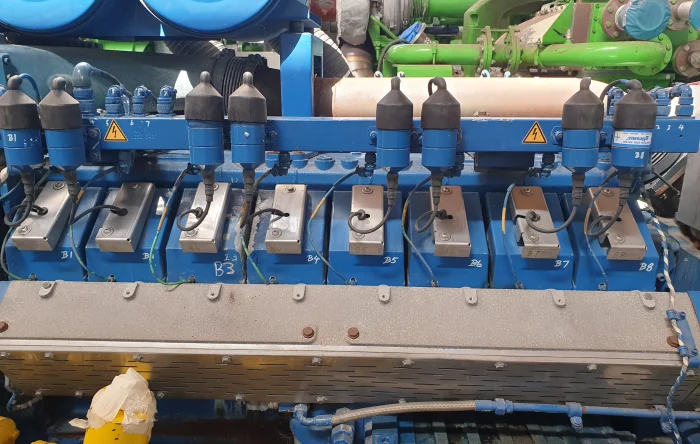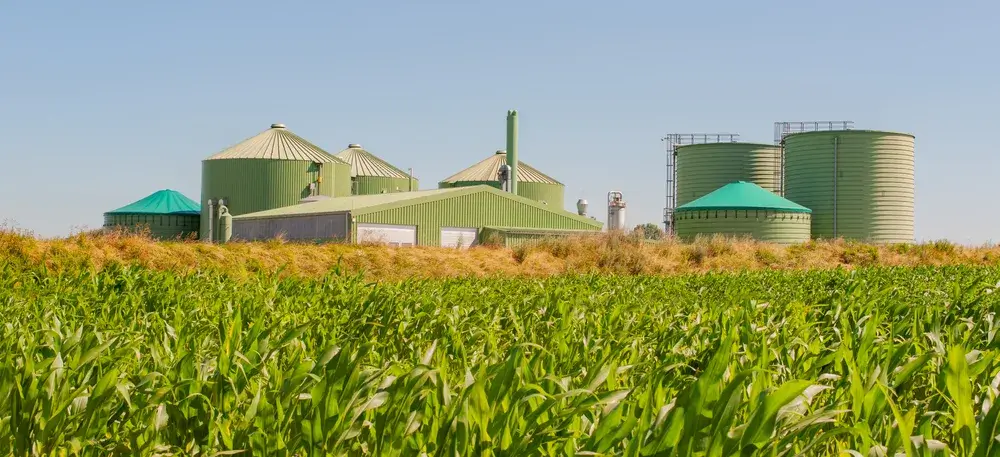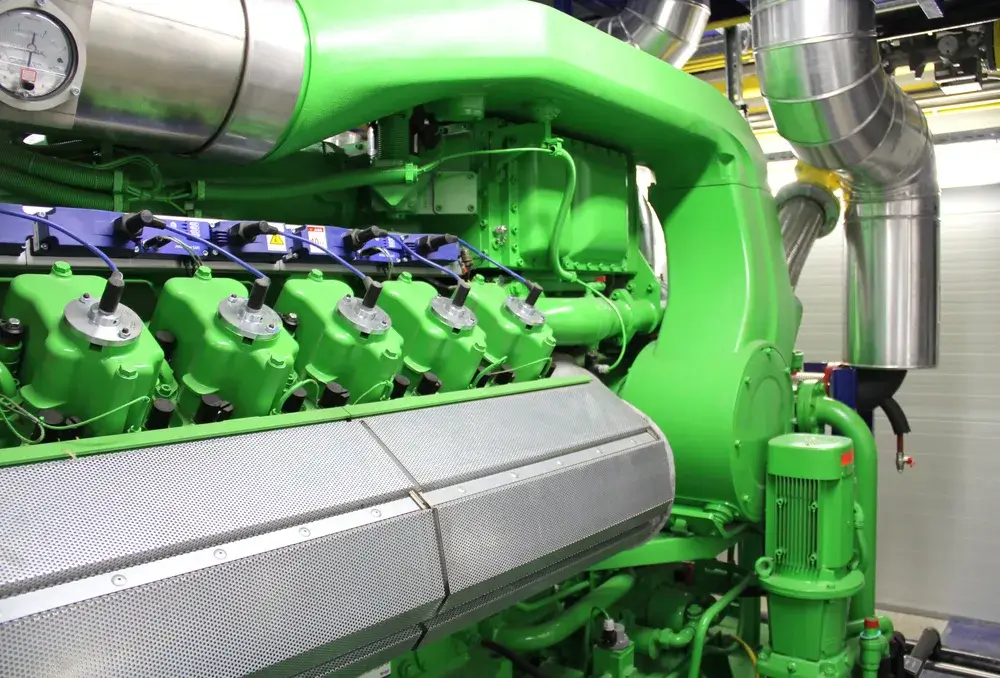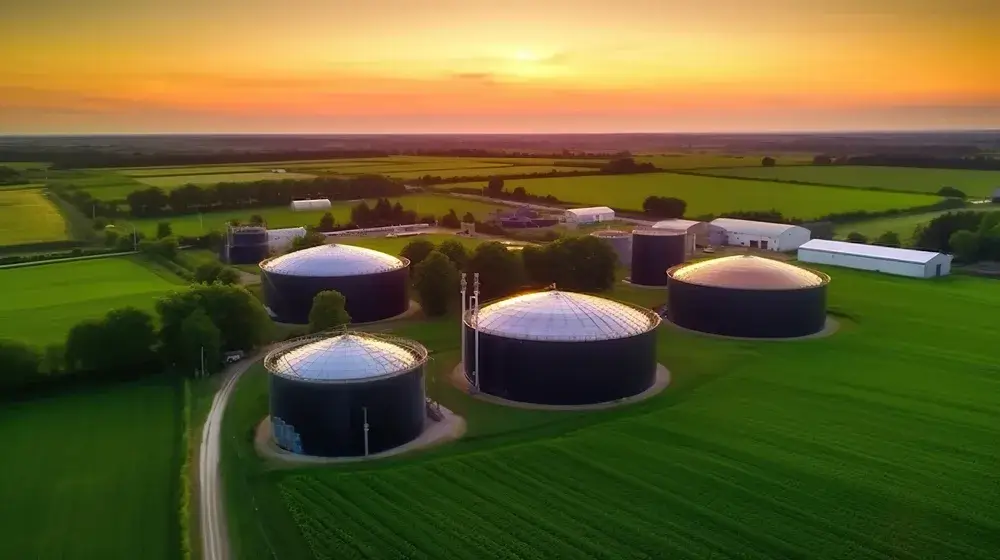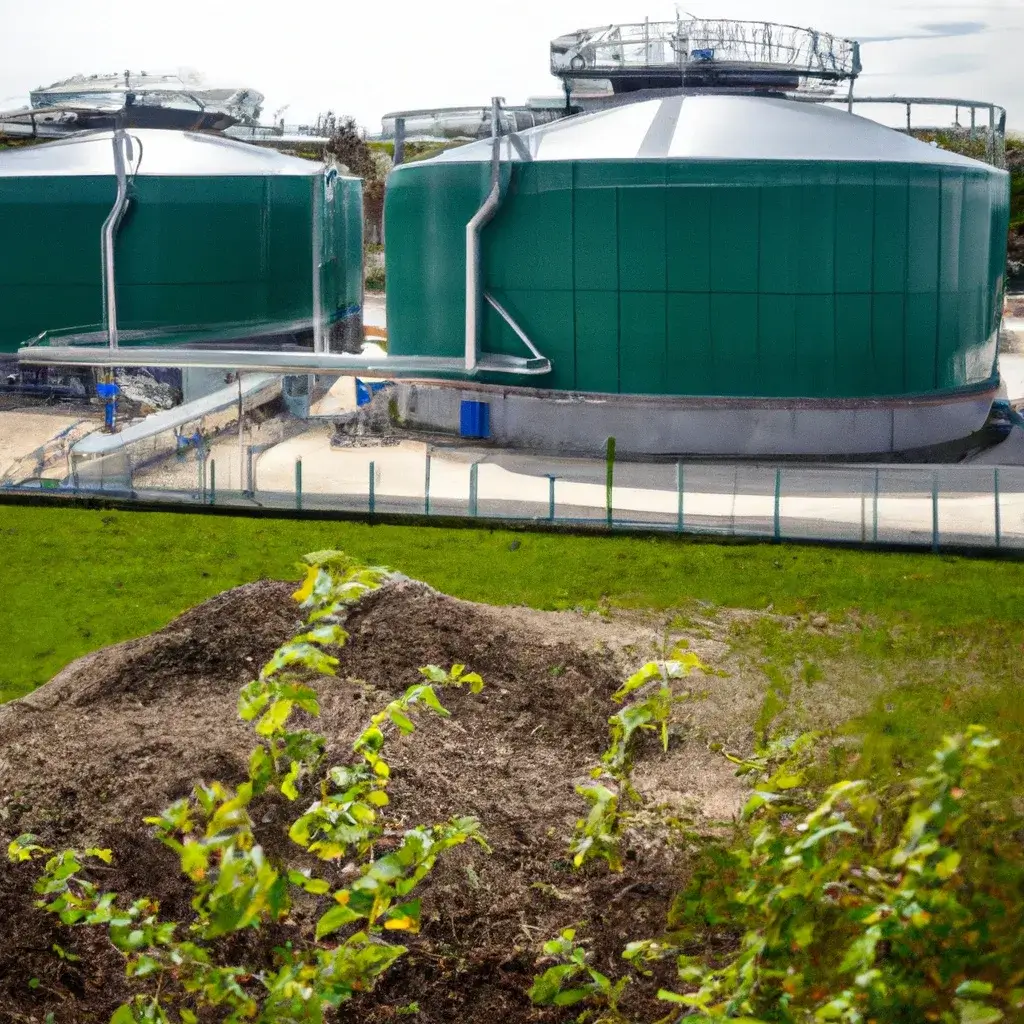Breaking Down the Differences of MWM® and Jenbacher® Gas Engines

Both MWM® and Jenbacher® gas engines belong to the leaders in their class, being requested worldwide. Operators of facilities like combined heat and power plants (CHP plants) or biogas plants value their efficiency, service-friendliness, and reliability. And as both manufacturers provide a product portfolio of different types of gas engines, it can become challenging to compare their characteristics in order to find the best choice for an individual application.
We have taken over this task for you and compared various models of MWM® and Jenbacher® gas engines in terms of power output, electrical and thermal efficiency as well as fuel options.
MWM® and Jenbacher® gas engine lineup
The product lineup of Jenbacher® and MWM® gas engines is constantly evolving, with models being added, evolved, but also discontinued. And since there are various subtypes and customization options for these gas engines, but also different use scenarios, we have chosen to summarize them by indicating value spans for a clearer overview.
If you are interested in accurate and up-to-date details on a very specific engine model under special operating conditions, please check for the manufacturers’ websites. But if you keen on getting a more holistic overview of where the gas engines by MWM® and Jenbacher® differ, you shall get it right below! Here, we have compared:
as well as
Power output in comparison
In the following table, you’ll find a comparison of the power output ranges of different Jenbacher® and MWM® engines.*
| Jenbacher® | Power output range (kW) | MWM® | Power output range (kW) |
| Type 2 | 249 – 335 | ||
| Type 3 | 393 – 1,155 | TCG 2016 TCG 3016 | 400 – 800 400 – 1,000 |
| Type 4 | 749 – 1,564 | TCG 2020 TCG 3020 | 1,000 – 2,000 1,380 – 2,300 |
| Type 6 | 1,798 – 4,507 | TCG 2032 | 3,000 – 4,500 |
| Type 9 | 9,352 – 10,606 |
Comparing efficiency levels
Efficiency is a major criterion when selecting a gas engine. Therefore, we have compared both electricity and thermal efficiency of MWM® gas engines as well as Jenbacher® gas engines.*
| MWM® | Electrical efficiency (%) | Thermal efficiency (%) |
| TCG 2016 TCG 3016 | 41.3 – 42.8 41.5 – 43.5 | 42 – 46.5 42.2 – 45.7 |
| TCG 2020 TCG 3020 | 40.6 – 43.7 41.5 – 45 | 42.7 – 45.7 40.5 – 45.9 |
| TCG 2032 | 43 – 44.6 | 42.1 – 43.3 |
| Jenbacher® | Electrical efficiency (%) | Thermal efficiency (%) |
| Type 2 | up to 39.7 | up to 52 |
| Type 3 | up to 43.2 | up to 51.2 |
| Type 4 | up to 44 | up to 50.5 |
| Type 6 | up to 47.1 | up to 47.5 |
| Type 9 | up to 48.7 | up to 47 |
What fuels MWM® and Jenbacher® engines?
Depending on where a gas engine is destined to be operated, it must run on different types of fuels – be it biogas, landfill gas, or natural gas. While one has to consider the aforementioned subclasses and configurations of MWM® and Jenbacher® gas engines, here is a general overview of what they can be fuelled with.
| Jenbacher® | Fuel type | MWM® | Fuel type |
| Type 2 | Coalmine gas, natural gas, biogas, sewage gas, landfill gas | ||
| Type 3 | Coalmine gas, natural gas, biogas, sewage gas, landfill gas, flaregas, propane | TCG 2016 / TCG 3016 | natural gas, landfill gas, biogas, mine gas, sewage gas etc. |
| Type 4 | Coalmine gas, natural gas, biogas, sewage gas, landfill gas, flaregas | TCG 2020 / TCG 3020 | natural gas, landfill gas, biogas, mine gas, sewage gas etc. |
| Type 6 | Coalmine gas, natural gas, biogas, sewage gas, landfill gas, flaregas | TCG 2032 | natural gas, landfill gas, biogas, mine gas, sewage gas, coke oven gas, hydrogen admixtures up to 25 vol% |
| Type 9 | Natural gas |
Two manufacturers – one service expert: PowerUP
As the tables above demonstrate, both Jenbacher® and MWM® gas engines stand out in categories like power output, electrical and thermal efficiency as well as fuel flexibility. However, in order to ensure that these gas engines stay as powerful and efficient as possible, regular maintenance is indispensable.
Here, PowerUP comes in: The company is specialized in the gas engine service, maintenance, and overhaul of machines from manufacturers like MWM® and Jenbacher®. With dedicated gas engine spare parts, PowerUP is able to further increase the efficiency of the engines, while condition-based overhauls ensure that the full lifespan of single components is individualized and exploited.
What’s more, PowerUP also has profound expertise in custom-made upgrades of different gas engines. With specifically developed gas engine components such as cylinder heads, pistons and blowby filters, we are able to further improve the efficiency, reliability, and longevity of engines like MWM® or Jenbacher® gas engines.
* Please note that the exact value depends on factors like the specific model configuration or the fuel type.




